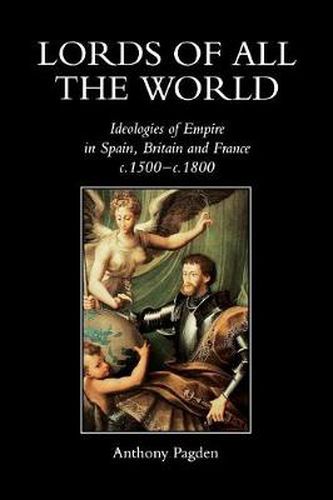Readings Newsletter
Become a Readings Member to make your shopping experience even easier.
Sign in or sign up for free!
You’re not far away from qualifying for FREE standard shipping within Australia
You’ve qualified for FREE standard shipping within Australia
The cart is loading…






The rise and fall of modern colonial empires have had a lasting impact on the development of European political theory and notions of national identity. This book is the first to compare theories of empire as they emerged in, and helped to define, the great colonial powers Spain, Britain, and France.
Anthony Pagden describes how the rulers of the three countries adopted the claim of the Roman Emperor Antoninus to be Lord of all the World. Examining the arguments used to legitimate the seizure of aboriginal lands and subjugation of aboriginal peoples, he shows that each country came to develop identities-and the political languages in which to express them-that were sometimes radically different. Until the early eighteenth century, Spanish theories of empire stressed the importance of evangelization and military glory. These arguments were challenged by the French and British, however, who increasingly justified empire building by invoking the profit to be gained from trade and agriculture. By the late eighteenth century, the major thinkers in all three countries, and increasingly in the colonies themselves, came to think of their empires as disastrous experiments in human expansion, costly, over-extended, and based on demoralizing forms of brutality and servitude. Pagden concludes by looking at the ways in which this hostility to empire was transformed into a cosmopolitan ideal that sought to replace all world empires by federations of equal and independent states.
$9.00 standard shipping within Australia
FREE standard shipping within Australia for orders over $100.00
Express & International shipping calculated at checkout
The rise and fall of modern colonial empires have had a lasting impact on the development of European political theory and notions of national identity. This book is the first to compare theories of empire as they emerged in, and helped to define, the great colonial powers Spain, Britain, and France.
Anthony Pagden describes how the rulers of the three countries adopted the claim of the Roman Emperor Antoninus to be Lord of all the World. Examining the arguments used to legitimate the seizure of aboriginal lands and subjugation of aboriginal peoples, he shows that each country came to develop identities-and the political languages in which to express them-that were sometimes radically different. Until the early eighteenth century, Spanish theories of empire stressed the importance of evangelization and military glory. These arguments were challenged by the French and British, however, who increasingly justified empire building by invoking the profit to be gained from trade and agriculture. By the late eighteenth century, the major thinkers in all three countries, and increasingly in the colonies themselves, came to think of their empires as disastrous experiments in human expansion, costly, over-extended, and based on demoralizing forms of brutality and servitude. Pagden concludes by looking at the ways in which this hostility to empire was transformed into a cosmopolitan ideal that sought to replace all world empires by federations of equal and independent states.